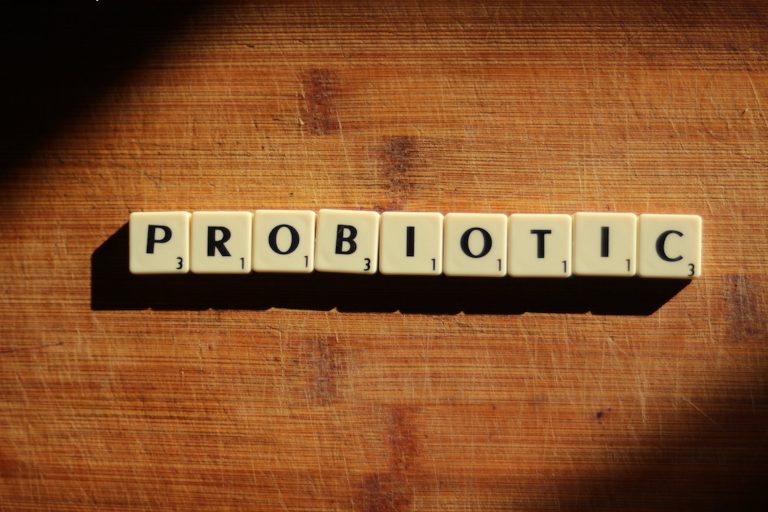Probiotics in dogs have become an increasingly discussed topic, representing a valued option for improving the digestive health of our four-legged friends.
When it comes to the health of your faithful four-legged friend, care and attention become undisputed priorities. However, it is not only love and attention that is crucial, but also practical aspects such as proper nutrition and proper care. Looking for ways to improve the well-being and health of your dog, probiotics have begun to capture the interest of many pet owners.
These supplements, recognized for their benefits to human gut health, are now making their way into canine health discussions as well. However, the essential question arises: are probiotics as effective for dogs as they are for humans? Is there hard evidence to support the benefits of these supplements for our non-speaking friends? Let’s find out together if probiotics are just a trend or if they really bring significant improvements in the intestinal health of dogs.
CONTENT:
- What are probiotics and how do they work?
- The benefits of probiotics in dogs
- How to choose probiotics for your dog?
- Food containing natural probiotics for dogs
- Limitations and Warnings
What are probiotics and how do they work?
Probiotics are beneficial, considered “good” bacteria that live naturally in the dog’s digestive tract and help maintain a healthy balance between beneficial and harmful bacteria. These microorganisms play a vital role in the optimal functioning of the dog’s digestive system by supporting digestive processes, supporting immunity and providing a favorable environment for the absorption of essential nutrients.
The way probiotics work is due to their ability to colonize and grow in the dog’s digestive tract. These beneficial bacteria produce chemicals such as organic acids and enzymes that can inhibit or destroy harmful bacteria. Therefore, they contribute to maintaining a favorable environment for the intestinal and digestive health of the dog, helping to reduce the risk of conditions such as diarrhea, constipation or other digestive problems.
In addition, probiotics can also support the dog’s immune system, as a significant part of the functioning of the immunity is based on the health of the digestive tract. A healthy balance of bacteria in the gut can contribute to better resistance to infections and immune-related diseases.
In essence, probiotics act as a natural support for the dog’s intestinal and general health, helping to maintain an optimal balance of intestinal flora and promote healthy digestion.

The benefits of probiotics in dogs
The health benefits of probiotics for dogs are multiple and directly target their digestive and general health.
-
Improved gut health
Probiotics are known for their ability to maintain a healthy gut environment. These beneficial bacteria work to balance the intestinal flora, reducing the risk of digestive problems such as diarrhea or constipation. They can help regulate intestinal transit, increasing the absorption of essential nutrients and providing better protection against the invasion of harmful bacteria in the dog’s digestive tract.
-
Immune System Support
A crucial aspect of dog health is related to the functioning of the immune system. A significant proportion of immunity is based on a healthy gut. Probiotics contribute to maintaining a favorable environment in the gut, thus supporting the dog’s immune system. By strengthening the gut flora with beneficial bacteria, they can improve the body’s ability to fight infection and disease.
-
Reducing digestive sensitivities
For dogs experiencing digestive sensitivities or food intolerances, probiotics can provide some comfort and help with symptom management. These beneficial bacteria can help balance and protect the intestinal lining, thus reducing adverse reactions to certain foods or substances.

How to choose probiotics for your dog?
When choosing probiotics for your dog, it’s important to consider a few key factors that will help you select the most appropriate supplement for your pet’s specific needs.
The number of viable bacteria (CFUs)
This aspect is crucial for the effectiveness of probiotics. Check the product label for the number of colony forming units (CFUs) – the higher the number, the more viable bacteria and the more effective the supplement. Make sure the product contains an adequate amount of CFUs to provide significant health benefits for your dog.
Specific strains of bacteria
There are a variety of strains of beneficial bacteria, and some may be better suited to your dog’s individual needs. Consult a veterinarian to identify the specific strains of bacteria that may be most beneficial to your dog’s health and well-being. Certain strains may be more effective in managing digestive problems or strengthening the immune system.
Recommendations and Reviews
Look for products that have positive reviews and recommendations from other dog owners or veterinarians. The experiences of other pet owners or the advice of specialists can provide valuable insight into the effectiveness and safety of a particular probiotic supplement for dogs.
In addition, it is important to purchase products from trusted manufacturers and follow the dosage and administration recommendations specified on the label or as directed by your veterinarian. It is always advisable to consult a veterinarian before starting any supplement regimen for your dog to ensure that you are choosing safe and effective products to suit your pet’s individual needs.
Food containing natural probiotics for dogs
There are some natural foods that can provide probiotics for dogs. These include:
- Plain yogurt: Unprocessed yogurt, with no added sugar or artificial sweeteners, may contain beneficial probiotic bacteria such as lactobacilli and bifidobacteria. It is important to check that they do not contain artificial sweeteners, which can be harmful to the dog.
- Kefir: Similar to yogurt, kefir is a fermented drink that can contain a variety of probiotic bacteria and is considered a beneficial food for dogs’ digestive health.
- Fermented Pickles: Pickles such as sauerkraut, pickled cucumbers, or other fermented vegetables can provide natural probiotics. Make sure the pickles do not contain large amounts of salt or spices that could be harmful to dogs.
- Specific dog food supplements: There are products on the market that are formulated specifically for dogs and contain probiotics. These supplements are created with the specific digestive needs of pets in mind and can be administered as directed by your veterinarian.
It’s important to introduce any changes to your dog’s diet gradually and always consult a vet before adding new foods or supplements to ensure they are safe and suitable for your four-legged friend.

Limitations and Warnings
Although probiotics can provide significant health benefits for your dog, there are also some limitations and warnings:
- Adverse Reactions: Some dogs may experience adverse reactions to certain probiotics, such as bloating or abdominal discomfort. Gradual introduction of probiotics and monitoring of reactions is important.
- Varying effectiveness: Results may vary depending on the quality of the probiotics and your dog’s individual needs.
- Veterinarian Consultation: Always consult a veterinarian before administering any supplement, including probiotics. He will be able to provide personalized advice and recommendations specific to your dog.
In conclusion, probiotics can be beneficial to the intestinal and general health of dogs, providing them with a number of advantages. However, it’s important to choose quality products and always consult a veterinarian before starting any supplement regimen for your dog to ensure you’re choosing the right probiotics and to avoid potential side effects.

